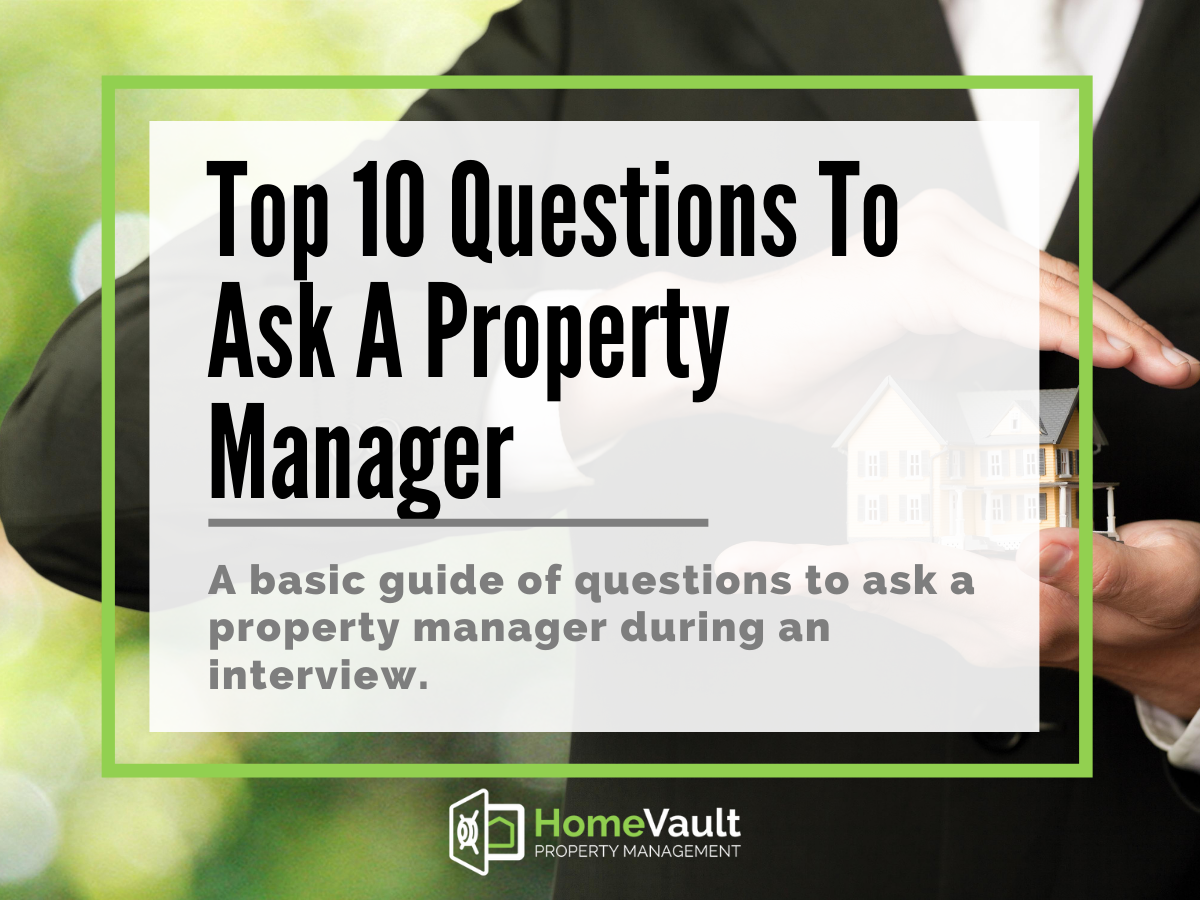Why, When, and How to Hire A Property Manager for Your Rental

‘Should I hire a property manager?’ Many landlords contemplate on this at some point, and for a good reason. As your business grows and you add additional properties to your portfolio, or you move out of town or state, it becomes increasingly difficult to self-manage. Even if you own a single rental property, the legal and financial aspects of self-managing your rental are sufficiently complex to cause headaches.
Whether you are contemplating the idea of hiring a property manager, or you are already in search of a property management company for your rental investment, you’ve landed well. In this guide, we’ll walk you through why you may need a professional to manage your rental, when to ask for help, and how to hire a property manager.
But let’s start with some definitions.
What is A Property Manager?
Table of Contents
A property manager/ property management company is a business responsible for the management of a rental property. Property managers are often hired by landlords and rental investors looking to grow and scale up their business, free up their time and increase their returns.
In short, a property manager is responsible for an array of services, the most common of which are managing tenants, collecting rent, responding to maintenance requests, establishing maintenance budgets, and marketing the rental as effectively as possible for the least cost. If you feel you need more information on this matter, we’ve written a detailed piece about the role of the property manager professional, so feel free to check it out before you delve into this article.
Property Management Pros and Cons
This is a question that many landlords face and for good reason. Professional property management neither comes cheap, nor without contractual obligations. When working with a professional, you’ll need to stick to the terms and conditions of a property management agreement, which not all landlords find it easy. While the question of whether or not you should hire a property manager is valid – in fact, crucial for understanding where you stand as a landlord – the answer to it really depends on your own financial goals, know-how, lifestyle, and ability to manage a rental. So let’s look in detail at the advantages and disadvantages of using a property management company.
The Pros of Hiring a Property Management Company
Many investors choose property management companies to manage their assets because of advantages such as:
- Expertise – Managers have a degree of expertise and experience in managing rentals that cannot be equalled by someone outside of the industry. This allows them to know the in and outs of pricing, how best to advertise properties, do tenant screening and much more. Property managers also have a vast knowledge of Fair Housing Laws and many other aspects that would give you a headache only when thinking about them.
- Free Time – Because property managers can do virtually anything in your name, they will free up your time so that you can spend it on whatever you wish, from family to new business opportunities.
- Maintenance Outsourcing – Maintenance issues can be exhausting especially when a tenant calls in unexpectedly. Property managers will not only respond to these maintenance issues quickly, – some have 24/7 call centers! – but they always have multiple vendors lined up and ready to tackle the job, which will save you the time and hassle of finding the best vendors.
- Turnover Reduction – Property managers have the know-how to increase the tenancy duration, and therefore maximize your income. Many managers have special welcome procedures for new tenants, and maintain good communication with existing ones, in order to make sure that they have a good experience in your rental, and that they want to renew the lease.
- Boots on The Ground – Managing a rental portfolio is complex to start with, and doing it while being outside of the city or state in which it is located is nearly impossible. Many investors that do not live in the same location with the rental, or have a large portfolio hire property managers to have the ‘boots on the ground’ for their rentals.
- Rental Income Maximization – Property managers are experts in optimizing your rental revenue, from marketing your rental for the highest possible price to increasing your tenancy rate and obtaining discounts for maintenance work because of their business relations with vendors.
The Cons of Hiring A Property Management Company
As we said before, there is no black and white when it comes to hiring a property manager, and it all depends on your goal as a landlord, and how you want to spend your time. Here are some of the disadvantages to consider before you make the decision on whether or not to hire a property manager:
- You Are Not The Manager Anymore – As a landlord, you may want to be involved in the daily running and management of your rental property. Regardless of whether you see this as a way to increase your rental revenue, or simply you don’t feel comfortable unless you know every detail on maintenance work and disbursements, it will make it very difficult to collaborate with a property manager. Property management companies already have systems in place to deal with every single aspect of your rental, and your involvement will only cause strain on each party. If you are a hands-on landlord, perhaps self-managing is a better fit for you.
- Property Management Costs – Property management is a paid service and you should expect expenses, particularly when you are onboarded. Although property management fees really differ depending on the company, most property managers charge a monthly property management fee and a leasing fee. These fees are charged for a reason, though. For example, the leasing fee goes toward the marketing of your home, – listings, photos, and videos, etc. Miscellaneous fees might also be included depending on the company, so at the end of the day, it really depends on whether you are willing to pay a management fee, or want to self-manage to save money.
- No Communication with Tenants – As long as you hire a property manager, you will not be able to keep in touch with your tenants. Many property managers even have no-communication policies in order to maintain only one channel of communication and to avoid unnecessary misunderstandings and confusion if too many parties are involved. So if you like to be in touch with your tenant and to drop by the property from time to time, neither your property manager nor you will have a great time together.
Now that we’ve overviewed the pros and the cons of hiring a property management company, let’s go through a couple of basic examples of when you’d want to hire one, and vice-versa.
When You Should Hire A Property Manager
There are many situations in which you’re better off by hiring a professional property manager, and we’ve listed them in detail below. Generally, you want to hire a property manager when you do not have the time, know-how, ability, or interest in managing your rental. Here are some practical examples:
You own property out of state – When you own a rental property that is located out of the state or town you are based in, you obviously can’t maintain boots on the ground, and won’t be there when the tenant faces a problem and needs your help. Yet property management companies maintain entire local teams ready to act as soon as there is a need. Hiring a property manager will save you from dealing with countless issues that you won’t be able to resolve from afar, like maintenance, renovations, property inspections for move-in or move-out, and many other activities that require your presence on site.
You have limited time – Imagine your already busy schedule. You probably have a full-time day job or even more, or you are a full-time investor looking to grow your real estate portfolio. Managing your property is not an 1-hour-a-month job! It implies constant work on accounting, maintenance, and tenant communication. Add in more properties, and you’re soon looking at a full-time job. Before deciding whether or not you go for a professional solution, you’ll need to analyse how much free time you have, and whether you want to use it to manage your property. If you don’t have a lot of free time, then hiring a property manager to deal with the day-to-day management of your rental property will save you from the trouble of not responding in time to your tenant because you were caught up in other activities.
You are an investor who owns several rental properties – If we have still not emphasized it enough, here you go: managing multiple properties can turn into a full-time job very fast. Add in the lack of business networking with vendors to take care of your portfolio’s maintenance and turnovers, and you’re set for the wrong path. Or property management companies have processes in place and expert teams that are focused precisely on maximizing your rental income.
You are not interested in hands-on management – At times coordinating maintenance can sometimes spiral out of control if you don’t take the hands-on approach, and managing your rental property can feel like a burden. If you’re not into receiving emails and phone calls from your tenant requesting maintenance, if you think that collecting rent is hard, and you do not have a large network of vendors you can tap into when maintenance or repairs arise, then you’re better off with a property management company taking care of your rental, because they will lay down an entire apparatus of procedures, and put at your disposal an entire team of experts to take care of what you would otherwise take care of alone.
When You Should Not Hire A Property Manager
Here are some of the disadvantages to consider before you decide whether or not to hire a property manager:
You don’t want/can’t invest in maintenance and repairs – Often, your new property manager will recommend repairing or refurbishing your rental before a new tenancy begins. Sometimes, you may even disagree because you remember that the house is still in decent shape, right? Not really. Experienced property managers know very well what are the repairs that need to be done now in order to save you money in the long run, by increasing the tenancy length and the rental value of your property. If you feel you want to have absolute control over the finances of your property, or are unwilling or unable to invest upfront for later returns, you may not want to hire a professional property manager, as you will likely end up in disagreement about the maintenance expenses.
You are a DIY handyman – You are a handyman and enjoy doing it, have tons of experience in maintenance and repairs, and won’t let someone else do it for you. If you identify as such, self-managing your property makes the most sense for you. Most property managers have clear procedures and an entire network of licensed vendors to take care of maintenance, and in order to make sure that the work corresponds to their standards, they will have a hard time allowing you to perform maintenance on the property.
You are emotionally attached to the property – Perhaps you have inherited the property from someone dear to you, or maybe it is your childhood home. Regardless of its history, you are strongly attached to it, and would rather not alter its looks. While that’s totally understandable, a property manager will have a rough time juggling between their mission to make your property profitable by undertaking repairs or partial refurbishing, and your desire to keep the property unaltered, so please consider whether you have the drive to turn the property profitable at the expense of your attachment to it before hiring a professional to manage it.
Being a landlord is your full-time job – You own one or more properties, and being a landlord is your full-time or main job; you allocate time to your tenant needs, have a network of vendors to rely on, live close-by, are well-versed in all aspects of property management and take pleasure in managing your portfolio alone. If you are a successful full-time landlord, then it does not make much sense to hire a property manager.
How to Choose A Property Manager
So you have decided you need a property manager. There’s no simple recipe on how to hire a property manager, but a mixture of documentation, the right questions at the right time, and clear expectations on both sides should set you up for success.
Imagine dealing with a property manager who will constantly dodge your calls all while they ignore the needs of your tenants because you thought it was just as easy as ABC and didn’t care to check their references or qualifications. You don’t want that. So how do you properly select your property manager?
In short, you want a property management company that:
- Has a track record of success.
- Is transparent and honest about their processes, behaviour, and charges.
- Will represent your interests.
- Is fast in solving issues.
- Communicates clearly and at key points during the tenancy.
Check Qualifications
There are standard, state-specific requirements that your property management company needs to comply with. Property management laws differ from state to state, so you will need to check with the National Property Management Association to find what rules are applicable in the state in which you own rental(s). Regardless of the state, however, the property management company must hire licensed property managers, because they’re acting legally on your behalf to lease and manage your rental property. Again, regulations differ by state, with some states requiring HOA management licenses, property management licenses, or real estate licenses to run a property management company.
Check Reviews and Online Presence
Good online reviews are some of the best indicators of how good a property manager is, but what precisely should you look at in a review?
Look for landlord reviews as opposed to tenant reviews – Property managers are in the difficult position of choosing to act in the interest of the tenant at the expense of the landlord, and vice-versa. You want to know that your property manager will act in your interest, so good landlord reviews are a good indicator that the company you are looking at acts in their clients’ interest.
Over 3.5-star reviews – You may wonder why not 5-star reviews. A company that has primarily 5-star reviews has either not been in the business long enough to deal with problems that will make tenants or landlords complain, or probably has most reviews from friends and family. Property management is a complex business in which many third parties need to coordinate. Issues will inevitably appear over time, and the 5-star ideal is for practical purposes unattainable.
Professional responses to reviews – Search for a company that responds to reviews in a professional and fair manner. A company that responds to complaints definitely cares about its reputation and is actively seeking to improve. You may also want to check whether responses focus on solving issues, as opposed to escalating them. More than aiming at perfection, your future property manager must be ready to acknowledge mistakes and be ready to solve them in a transparent and equitable manner.
In addition to reviews, you may want to check if the property management companies that you are comparing have an online presence. Property managers with a good social media presence and actively posting useful information for landlords and tenants go the extra mile in offering good service to the community and show a willingness to share expertise and knowledge. Although not the most important aspect when you are in search of a property manager, you may want take note of this as a bonus point when you are comparing companies.

Confused about what you need to ask when you're interviewing a prospective property management company? Download our curated list of 10 questions to ask a property manager and set yourself on the right path of finding the right rental management professional!
DownloadList Your Expectations and Ask Questions
If you have set your eyes on a few property management companies already and you start shopping around and having the first round of calls with their sales representatives, make sure to list your expectations in the initial call. Believe it or not, this will actually help both parties, in that you and the property management team will immediately understand if you are a good fit for one another. Besides that, with all expectations communicated, the risk of bad surprises in the future decreases.
In addition to your expectations, you may find it useful to ask your property management company representative questions about procedures, which may shed light on the professionalism of their work. Here are some important questions to ask when hiring a property management company:
- How do you advertise and fill a rental vacancy?
- Will I pay a property management fee if my property is vacant?
- How do you determine a fair market rental rate?
- How do you screen new tenants?
- How long, on average, does it take to fill vacancies?
- Do I have to be involved in the tenant selection process?
- How do you handle tenant maintenance requests? What about emergencies?
- How do you handle late rent payments?
- How will you handle evictions if needed?
The key to being a profitable landlord is making sure you find the best tenants fast. Always find out how the property manager carries out the screening process. On average, how long will it take to fill a vacant rental property you own. Find out how many properties they’re currently managing, this will help you analyse if they can grow as you grow your real estate business. Is your property manager local? Well, then that’s great because you need a property manager that is familiar with the area as they will have an easier time marketing, setting appropriate rental rates, and filling the vacant property. You don’t want to find yourself stuck with an empty property because your property manager is charging rent that’s too high for the market or neighbourhood, which as a result will be costly.
No matter how well maintained the property may be, it will have tenant requests for repairs or emergencies. You will need to determine the property management company’s process for maintenance requests. This leads to less turnover, limiting your vacancy rate and maximizing your profit.
Find out how the property manager deals with tenants who don’t pay their rent on time. Lastly, make sure they know how to handle evictions and have experience doing so. As disheartening as it may be, being a landlord means you’ll likely face this possibility at some point. If you are an out-of-state landlord, it can be comforting to know the property management company you hire can handle any issue that comes their way.
Follow Up and Communication Skills
Follow up and communication during the sales process is key in making a good impression in the sales process as well, meaning they need to be fast, prompt, transparent, maintain a good follow up, respond to all of the landlord questions via the phone or in writing, show up at the time when they say they will attend all meetings that they set up, etc.
It’s important to make sure the property management company you hire puts you first by assessing how quickly they return your calls and responding to emails. Do ask them how long it roughly takes them to respond to emails and return calls during the hiring process.
Pay attention to see if they are good listeners as this is key when hiring a property manager. There’s nothing worse than going through the process of looking at property management companies only to hire one that refuses to communicate with you. If by any chance you get the feeling that they are more interested in your money than delivering the best service, well then keep looking until you find a property management company that will put you first and cater to your needs even if it’s a bit more costly.
Clear Service Plans and Fees
Property management fees may vary from one company to the next and you’ll need to be well informed and know exactly what to expect and how best to plan for the cost that comes with hiring a property manager. Take a look at our article on property management company fees for a detailed analysis of property management costs, but for reference purposes, we’ll provide you with the gist of it here. Your main property management fees will be:
- Monthly management fee – Property managers charge monthly fees either as a flat fee or a percentage of monthly rent. This is what keeps a property management company running and managing your rental property.
- Leasing fee – This is a one-off fee that you may need to pay, depending on the property manager, when the unit is rented.
- Lease renewal fee – This fee is paid when a tenant renews their lease, and again, varies from company to company.
- Maintenance fee – Maintenance fees vary based on the scope of the project and are typically added to the vendor cost as a percentage or flat fee.
- Eviction fee – Property managers will typically charge for serving the eviction notice, dealing with attorneys, appearing in court, and any other services that take up their time or that need to be paid upfront to third parties involved. Some property managers offer Eviction packages on top of the property management plans that cover these costs.
In Conclusion
There are certainly property management pros and cons, and when it comes to hiring a property management company, it all depends on your financial goals, how much free time you have, and how involved you want to be in the management of your rental property.
In short, if you do not mind that your rental produces less income, you want to manage alone and have the time and expertise to do that, are sentimentally attached to the property or find it hard to allocate the funds to maintain and repair it constantly, you may want to consider self-management as a viable option.
If, on the contrary, you have an investor mindset, are looking to maximize your rental income, do not want to spend your free time managing your property or are out-of-state, or a combination of the above, we recommend that you hire a property management company to act on your behalf and fulfil your goals.
Let us know if you have additional questions on how to hire a property manager, we’d be happy to help!



I love that this post reminded us that when choosing a property management service, it is important for us to consider their policies and costs. In doing so, we can be certain that it is a perfect fit with us. Assuming that I need a service to look for a house, I will remember this information.
My uncle has been thinking about getting the right kind of management for his extra properties because he wants to be more effective. He would really like to get some help from a professional in order to be more effective with fewer problems. I liked what you said about how they should act in his interests in order to have better coordination.
It was really helpful when you said to work with a company that replies to reviews! My sister was telling me last night while at my house for dinner about how she and her husband are wanting to rent out their vacation home in a couple of weeks, and they want to make sure that they can find the right property manager to help them. I’ll make sure to pass these tips along to them as they search for one to hire!
Thanks for pointing out that property managers would be charging monthly fees, flat fees, or monthly rent. I guess it would be best to talk to the professionals to know your options when you have a vacation rental and need a property management service to deal with tenants. Their services would be useful for those who live far away from their investment property, especially if it is a state away.
Thanks for helping me understand that a property manager would be able to help grow and scale up their business, time, and money. I guess property management is used by owners who have plans to use their vacation homes as rentals for tourists. It would definitely be a big help to them, especially when they originally live in another city or even state.
My parents own a rental home about an hour away from our house and they want to hire a property management company for it. It makes a lot of sense to choose a property manager that has a successful track record for jobs in the past. I’ll make sure that my parents keep this in mind so they can find a reliable property management company.
It helped when you said that repairing or refurbishing is the work of your managing service. My brother told me that he was looking for a service that could manage financial accounts for his real estate property, and he asked if I had any idea what would be the best option to find. Thanks to this helpful article, I’ll be sure to tell him that it will be much better if they consult trusted staffing services as they can provide more information about the financial managing process.
Property management companies are up to date on the latest laws, therefore landlords are able to leave all worries to the professionals who can deal with legal issues in the correct manner.
It’s awesome that you explained how a property manager has the right skills and experience that you need. Last week, my aunt said she wants to rent her vacation home. My aunt doesn’t want to spend her time screening and finding tenants for her property, so I think she’d be glad to read your article. Thanks for the information on working with property managers to avoid property-management stress.
I love reading your article. This is such an amazing post.
I appreciate that you explained that an agreement with a property manager should be fair to have a great service outcome. As we moved to our new place, my spouse told me she wanted to have our residential properties rented to have a passive income. She asked if I had ideas for efficiently managing the property. I appreciate the tips on the importance of property planning. I’ll tell her we can consult a property management service as they can provide details about the property managing process.